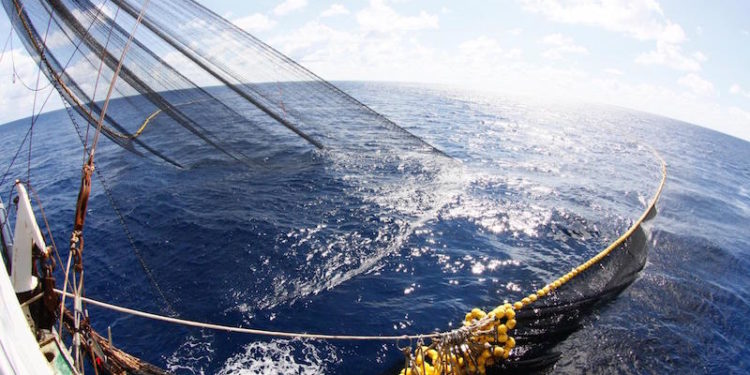The Spanish tuna fishing fleet remains one of the most receptive and active worldwide in adopting International Seafood Sustainability Foundation (ISSF) best practices for mitigating by-catches, a commitment reflected in the Spanish fleet’s high attendance at these workshops each year and as stated in an ISSF Technical Report.
‘ISSF engagement is essential so that our crew members and, specifically, skippers of vessels are familiar with and can carry out activities ranging from the use of non-entangling FADs to the release of by-catch, which are part of the foundation of fishing that respects the marine environment and resources,’ said Julio Morón, managing director of Spanish tuna fishing organisation OPAGAC.
Furthermore, all Spanish tuna purse seine vessels are on the ISSF’s ProActive Vessel Register (PVR), which audits vessels to show how they are meeting specific measures for sustainable fishing.’
ISSF’s recommended best practices include using non-entangling FADs and following handling-and-release techniques for non-target species such as turtles and sharks to maximise their survival opportunities. The Spanish fleet has consequently increased the number of its vessels with specific tools for by-catch mitigation, such as stretchers or loading nets.
Since 2011, the Spanish fleet also has been instrumental, together with the French, in contributing to ISSF’s non-entangling FADs research and development, an example followed by additional fleets more recently in the development and testing of biodegradable FADs.
‘Close collaboration between scientists and skippers has made it possible to conduct significant research projects, such as those on the Albatún 3 and Mar de Sergio purse seiners in the Western Pacific and the Atlantic, respectively, and which will be key to the BIOFAD project in testing new biodegradable FADs in the Indian Ocean,’ said Víctor Restrepo, ISSF’s Vice President, Science and Chair of its scientific advisory committee.
The Spanish fleet’s acceptance and application of key ISSF best practices is directly related to ISSF vessel outreach, specifically via its Skippers’ Workshops, according to ISSF Technical Report 2017-03, co-authored by ISSF staff and consulting scientists, including those from AZTI, which has facilitated these workshops since 2009. Almost 25% of participants in ISSF workshops since they began are affiliated with the Spanish fleet.
At an August 2016 workshop in Spain, at the headquarters of the Port of Vigo Shipowners Cooperative (ARVI), more than 90 professionals participated. That year, ISSF conducted 14 workshops in seven countries, including Spain, with the participation of 343 skippers from 12 purse seine fleets and another 216 people, including crew members and other professionals from the fishing sector.
Of the 2736 tuna fleet professionals in the world trained at ISSF workshops to date, 664 (63% are skippers and 19% are crew members) have participated in one of the 10 workshops that ISSF has given in Spain. The rest of the professionals affiliated with Spanish vessels participated in workshops held in countries where the fleet has a presence, such as Ecuador and Panama.
The next Skippers’ Workshops are being held 16-20th October in Sukarrieta (Vizcaya), the site of the one of the earliest ISSF workshops. More than 50 participants are taking part, and one of the event’s key topics will be biodegradable FADs, on which ISSF works in collaboration with the tuna fishing industry and other strategic partners.









